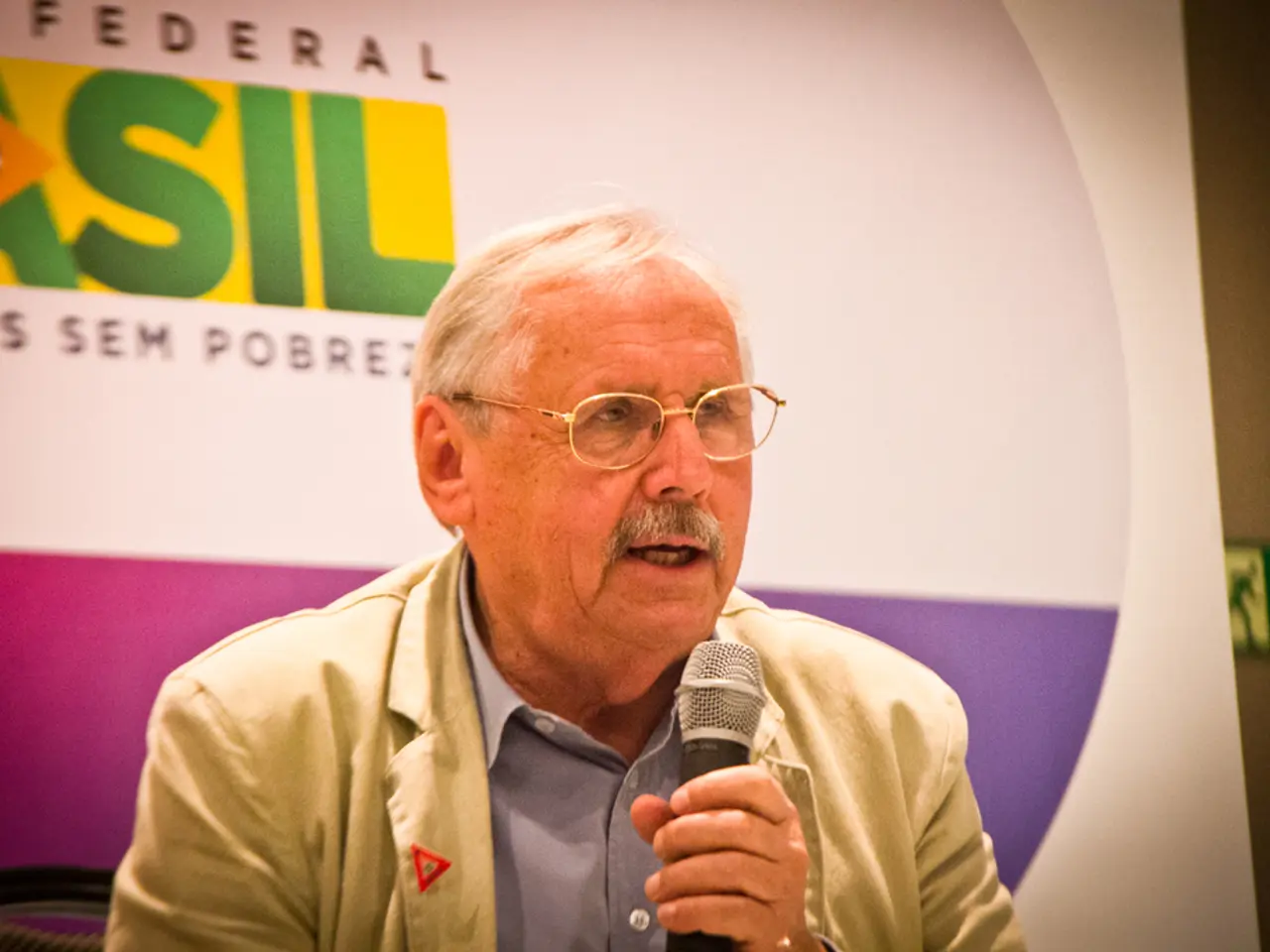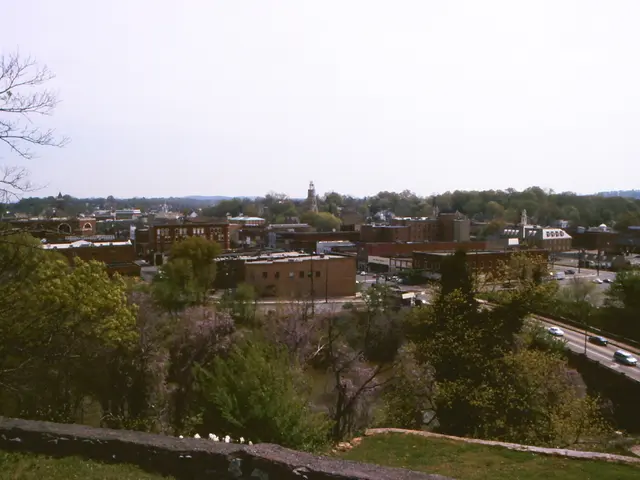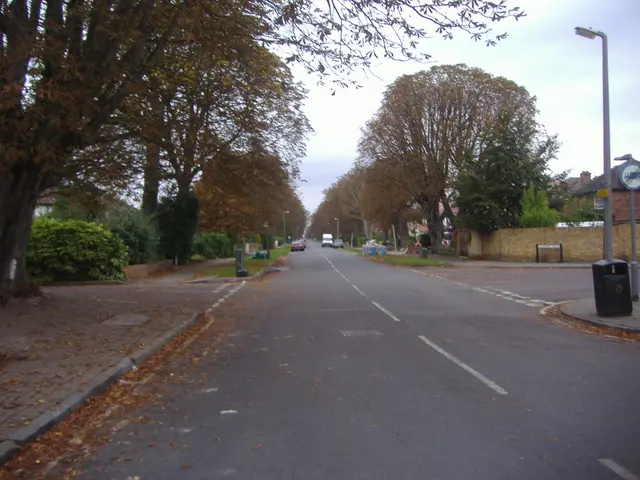Haseloff's reign concludes in 2026 – election campaign devoid of incentives
In the political landscape of Saxony-Anhalt, Germany, the upcoming state election on September 6, 2026, promises to be a significant contest. The election is marked by the strength of the right-wing populist party, the Alternative for Germany (AfD), which has been a major opposition force in the region.
Key Players and Their Positioning
- Christian Democratic Union (CDU): The CDU, currently led in Saxony-Anhalt by Sven Schulze, who is also the State Minister for Economic Affairs and has been the CDU state leader since 2021, is poised to face the challenge of countering the AfD's significant influence. The long-serving Minister-President, Reiner Haseloff, announced in August 2025 that he will not seek re-election in 2026. Schulze is seen as his likely successor and the top CDU candidate for the upcoming election. The CDU, together with the SPD, has governed in coalitions.
- AfD (Alternative for Germany): The AfD is strong in Saxony-Anhalt and other eastern German states, often polling at or above a third of the vote in some areas, posing a serious challenge to traditional parties. The AfD critiques the established parties and portrays itself as the defender of the "people" against elite politics, aiming to increase its vote share and influence.
- SPD and Other Parties: The SPD and Greens form part of the moderate left and center-left spectrum, generally positioning themselves firmly against the AfD. The Greens in Saxony-Anhalt emphasize their role as part of the "democratic firewall" protecting against the far-right and advocating fearless climate action and social equality.
Political Landscape and Rivalries
- The political contest will be framed by the effort to prevent the AfD from gaining further power or influence, with parties like the CDU, SPD, and Greens framing the election as crucial to safeguarding democracy in Saxony-Anhalt.
- The AfD capitalizes on dissatisfaction and portrays itself as blocking unpopular reforms, as described in the context of judiciary appointments and political decision-making.
- The CDU's new leadership under Sven Schulze seeks to maintain governance continuity but will need to counter the strong appeal of the AfD to voters who are disillusioned with the established parties.
- National budgetary and economic challenges, including debates over austerity and social reform, also influence the state election atmosphere, putting pressure particularly on the SPD and CDU to balance fiscal responsibility with social stability.
In summary, the 2026 Saxony-Anhalt state election will be a pivotal contest between the CDU's attempt to hold power under new leadership, a politically energized AfD with strong local support, and the left-leaning parties that position themselves as defenders of democracy and social justice. The AfD’s strength is a critical axis around which other parties are aligning their messaging and strategies.
Sven Schulze has emphasized his experience and announced increased online activity, stating that phone numbers are ten times more important for a state position.
- The migration of political power in Saxony-Anhalt, Germany, is set to shift with the upcoming state election on September 6, 2026.
- The election will see intense competition as the Christian Democratic Union (CDU) struggles to counter the significant influence of the right-wing populist party, the Alternative for Germany (AfD).
- Education and self-development could play a crucial role in this election as candidates focus on personal growth and mindfulness to appeal to voters.
- War and conflicts, both domestic and foreign, may emerge as a talking point during the campaign, with candidates addressing policy and legislation to ensure public safety.
- Productivity and career development might be key issues for some voters, especially in the context of job-search and employment opportunities.
- The political rivalries in the election are profound, with parties positioning themselves in stark contrast to each other, presenting distinctive ideologies and platforms.
- The CDU, led by Sven Schulze, will have to navigate the complexities of online education and digital strategy to engage with voters effectively.
- General news, crime and justice, accidents, fires, and learning will provide an essential backdrop to the election discourse as candidates discuss the challenges and prospects of the region.
- Goal-setting and lifelong learning are crucial components for skill-training and development, factors that could be amplified during the elections.
- Sports, a popular pastime in Saxony-Anhalt, may feature in the election campaigns as football, soccer, WNBA, baseball, hockey, golf, sports betting, European leagues, basketball, NCAA basketball, MLB, NHL, racing, premier league, NBA, grand prix, horse racing, and mixed-martial arts are all potential topics for discussion.
- Weather, an essential factor in everyday life, and weather forecasting might also become issues in the election debates, along with sports analysis.
- The CDU, as part of the coalition government, has been involved in making important decisions, including those related to auto-racing and tennis, which could impact the election.
- The widespread support for the AfD in Saxony-Anhalt raises concerns about the potential impact of their policies on societal harmony and democratic values.
- The political landscape has undergone significant changes in recent years, with shifts in migration patterns and demands for social and economic reform.
- Maintaining productivity and career development in the face of war and conflicts, as well as safeguarding democracy, will be key goals for voters during the election.
- Embracing mindfulness and personal growth could help candidates connect with voters and generate empathy, especially in the context of education and self-development.
- The CDU's new leadership, under the guidance of Sven Schulze, aims to continue the party's legacy while addressing the challenges posed by the fierce competition from the AfD.
- The Greens, as part of the democratic firewall, pledge to protect against the far-right and advance climate action and social equality, presenting themselves as a viable alternative to the mainstream parties.
- The AfD's portrayal of themselves as defenders of the "people" against elite politics has resonated with many voters, posing a formidable challenge to traditional parties.
- The political contest in Saxony-Anhalt will be a test of endorsements, endorsements that transcend party lines and tap into the collective consciousness of the voting public.
- Sports could be a unifying force in the election, helping candidates to demonstrate their commitment to fostering a harmonious and productive community.
- The 2026 Saxony-Anhalt state election will not only shape the political future of the region but also serve as a bellwether for the nation's political landscape, highlighting the importance of education, self-development, and social harmony in shaping a prosperous society.







